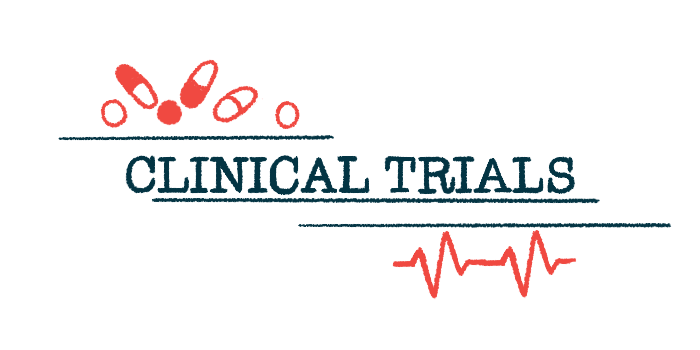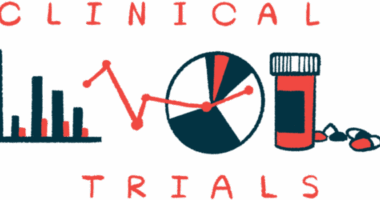Nebokitug reduces immune cell activity that drives PSC: Data
Developer planning Phase 3 trial to further test experimental infusion therapy

Nebokitug, an experimental infusion therapy being developed by Chemomab Therapeutics for primary sclerosing cholangitis (PSC), reduces the inflammatory activity of immune cells called macrophages that play a key role in driving PSC, according to new analyses of data from a Phase 2 clinical trial.
Chemomab is currently making plans for a Phase 3 trial to further test nebokitug in PSC. The trial design is nearly complete, following alignment on key study aspects with regulatory agencies in the U.S. and, more recently, in the European Union.
The agencies agreed that positive results from one registrational Phase 3 trial, the primary goal of which would be to assess whether nebokitug is more effective than a placebo at reducing the risk of liver-related events, could be sufficient to support the approval of nebokitug for PSC. Registrational trials are those designed to gather sufficient data on a new treatment to support an application for regulatory approval.
“I am delighted to report that we have support from both agencies that a single Phase 3 registration trial would be sufficient for approval,” Adi Mor, PhD, Chemomab’s co-founder, CEO, and chief scientific officer, said in a company press release. “In addition, both have agreed that a composite of clinically relevant events can be used for the study [goal].”
Chemomab is in discussions with potential partners to help run the upcoming Phase 3 trial, which will be launched “as soon as the necessary financial resources are available,” Mor said.
Nebokitug designed to block activity of signaling molecule
PSC is an autoimmune disease characterized by inflammation in the bile ducts, which are a series of tubes that carry the digestive substance bile from the liver to the intestines. This can lead to stalled bile flow, or cholestasis, which can eventually cause liver damage and scarring, also known as fibrosis.
Nebokitug, formerly CM-101, is designed to block the activity of CCL24, a signaling molecule that’s thought to help drive liver inflammation and fibrosis in PSC.
Administered via infusions into the bloodstream, the therapy was previously tested in adults with PSC in a Phase 2 clinical trial, called SPRING (NCT04595825).
In the study’s first part, participants were given one of two doses of nebokitug or a placebo every three weeks for about four months. Results indicated that the therapy was more effective than the placebo in reducing markers of inflammation, fibrosis, and cholestasis.
Participants who completed the placebo-controlled part were eligible to enter an open-label extension, where all participants received nebokitug for about 7.5 months. Long-term data indicated the therapy led to sustained reductions in markers of liver damage and fibrosis, as well as the occurrence of PSC-related clinical liver events.
Long-term nebokitug treatment led to dose-dependent reductions in key protein
Chemomab presented new analyses from the SPRING trial earlier this month at the American Association for the Study of Liver Disease’s The Liver Meeting 2025. Some of these analyses focused on how nebokitug affects the activity of macrophages, a type of immune cell that’s thought to play a key role in driving inflammation in PSC.
In one poster, the researchers shared data on how nebokitug treatment affected levels of macrophage-stimulating 1 (MST1), a protein that promotes macrophages’ anti-inflammatory activity.
Previous studies have indicated that the MST1 function is impaired in the livers of people with PSC, which contributes to the uncontrolled activation of inflammatory macrophages.
Nebokitug modulates key macrophage-related biomarkers in patients with PSC that have been shown to correlate with disease progression.
SPRING data showed that long-term nebokitug treatment led to dose-dependent reductions in MST1 levels, while there were no changes in the placebo group.
“Notably, MST1 increase was associated with a greater reduction in [liver stiffness measures],” the researchers wrote. Liver stiffness is used as a proxy for liver fibrosis.
There was also a significant association between levels of MST1 and CCL24, the therapy’s target, in PSC.
“These results from the SPRING trial suggest that MST1 may serve as a … biomarker of nebokitug activity and further support its anti-inflammatory mechanism of action,” the researchers wrote.
In another poster, scientists showed that nebokitug reduced levels of various other markers of macrophage activity in a dose-dependent manner. These reductions generally reached statistical significance among participants with moderate or advanced PSC who were treated with the higher dose.
“Nebokitug modulates key macrophage-related biomarkers in patients with PSC that have been shown to correlate with disease progression,” the researchers wrote.
Measuring the levels of these macrophage-related biomarkers combined allowed researchers to distinguish participants who responded to nebokitug from those who did not with an accuracy of 87%.
“With a clear regulatory pathway to approval in the [U.S.], international regulatory alignment on key aspects of the Phase 3 trial design, and increasing market interest, we are seeing growing recognition of nebokitug’s potential to become the first disease-modifying therapy for this devastating condition,” Mor said. “The limited number of ongoing PSC trials provides a unique opportunity to leverage our strong engagement with global PSC centers to advance our Phase 3 program rapidly and efficiently.”








